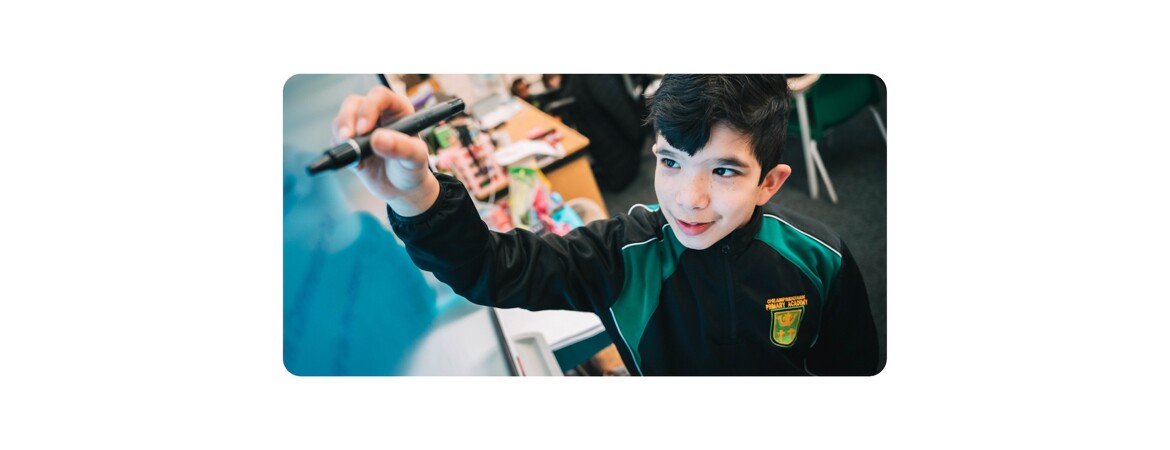- Home
- Our Impact
- News & Blogs
- Blog: From EdTech to PedTech
Blog: From EdTech to PedTech
Back to News & Blogs
From EdTech to PedTech: What’s the Difference?
The use of digital technology in the classroom is becoming more and more prevalent across the country.
Every new technology is a new challenge, and we are seeing an increasing number of schools adopting a different approach to tech-informed learning, moving from EdTech to PedTech.
But what is PedTech, exactly, and how can we use this new approach to improve outcomes for all pupils?
Here we give a brief overview of what you need to know!
What is EdTech?
EdTech, which stands for education technology, is the practice of introducing information and communication technology tools into education.
In-classroom tablets, whiteboards, remote learning deliveries and gamified learning activities are all examples of EdTech in practice.
What is PedTech?
The main difference between EdTech and PedTech is that the latter focuses on the ‘why’ and ‘how’ we introduce certain technologies into the classroom.
A concept developed by Dr Fiona Aubrey-Smith, PedTech is a mindset, and all about bringing pedagogical principles and intentions into the way digital technology is used.
This pedagogy-first mindset ensures that technology exists to meaningfully support education, rather than education being a market for technology products to be used in.
The EdTech sector has allowed schools to access digital technology – now we are focusing on how and why technology can better serve the needs of learners and teachers, with pedagogy as the guiding light behind all decision making.
Examples of PedTech in practice
Now, let’s see what PedTech looks like in practice through some of the work across our schools in recent years.
Variety
Through our research, we discovered that children prefer a mixture of resources to best engage with their learning – benefitting from a blend of physical and digital.
Our approach allows children to choose which resource works best for them, offering several EdTech and digital options through ThingLink interactive images and Google Classroom, as well as more traditional, on-paper resources and physical materials. This results in an inclusive classroom where everyone can choose what’s best for them at the point of need.
Accessibility
We have found that accessibility tools like TextHelp Read&Write and OrbitNote can effectively remove barriers and foster inclusivity.
At LEO, all learners can freely access accessibility, which research has demonstrated help everybody, not just those with formally identified SEND.
This means that children who need extra support don’t feel “set apart” or “different” from their peers. This results in a more positive and inclusive learning environment that nurtures self-confidence and independence.
What is the impact and benefits of PedTech?
The shift from EdTech to PedTech holds many benefits for both teachers and learners.
Here are just some ways in which a PedTech mindset has changed our learning environments and brought renewed value to our children’s learning experiences:
- Improved attainment
The attainment of children at LEO schools significantly outperforms national norms in national tests, with the gap between national averages and LEO widening each year (rising from 14-23% over the last 3 years). In particular, the proportion of children achieving greater depth in national assessments in Reading, Writing and Maths at LEO is more than triple the national average over the last 3 years.
- Improved SEN outcomes
The number of children on the SEN register requiring expensive intervention programmes has reduced by around a third because of embedded inclusive practice facilitated by digital technology.
- Higher attendance
Attendance figures across LEO are higher than the national average.
- Classroom efficiency
Digital tasks increase classroom efficiency by 23%, allowing better time allocation for more targeted and inclusive learning, leading to the significant attainment gains outlined above.
- Higher staff retention and job satisfaction
Nearly 75% of staff have certified digital skills, and staff satisfaction is consistently 15-20% above national benchmarks. LEO is seen as an employer of choice, leading to exceptionally high levels of staff retention.
Learn more with the LEO PedTech report
In 2019, LEO Academy Trust embarked upon a journey of digital transformation, investing significant time and resources into an ambitious new future.
We started the journey by giving every member of staff and every child in Key Stage 2 their own Chromebook, while we also introduced every child in Early Years and Key Stage 1 to on-demand access to an iPad or Chromebook to support their learning.
Our ambitions have only become bigger, and our efforts have only been more effective since then, with pedagogy taking centre stage.
For a more in-depth look into the benefits of moving from EdTech to PedTech and how we are leveraging this approach to improve outcomes for all our schools, head over to our LEO PedTech Impact Report.

